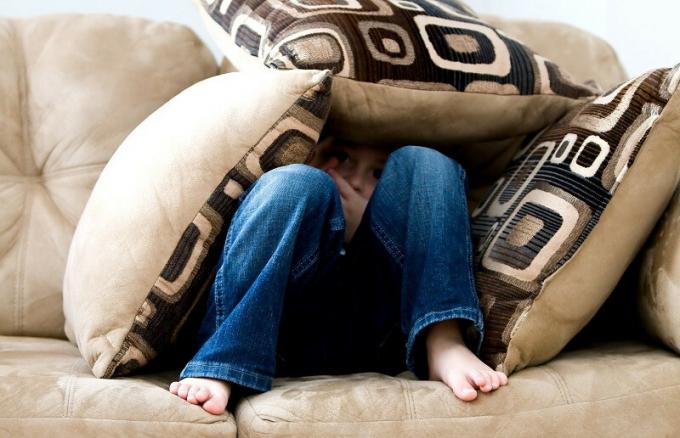Boys and girls, adolescents and divorce
When we end a relationship, we tend to perceive it as a failure in our lives.
But If we have children with the person we are going to separate from, everything is much more complicated and we are assailed by numerous doubts about how to manage the separation process.
- Related article: "Child therapy: what is it and what are its benefits"
Will the divorce affect my children?
The answer is simple: yes, our children will be affected, it will hurt. They have to do it, because it is an unwanted and sad situation for everyone, but we can cushion the blow it represents for them and it is a situation that they will overcome and will teach them that sometimes relationships do not work and can be ended in a cordial way.
This is fundamental learning for their future relationships. Many times there are couples who do not separate because they do not harm their sons and daughters; however, they argue, yell and do not have a cordial relationship. This model of relationship that we transmit to them is much worse than separating us. Sometimes we believe that they are not learning anything because we do not discuss in front of them. But the reality is that they perceive that something is not right and they suffer from it anyway.
What can we do for the welfare of sons or daughters?
The good news, considering that the situation is not pleasant for any member of the family, is that we can carry out a series of behaviors to favor the well-being of our children. They are the following:
- Try to have a friendly relationship with your ex-partner, as far as possible, at least cordial.
- Try not to subject sons and daughters to many different changes as a result of divorce. The ideal is to keep them in the same house and in the same school.
- Avoid the arguments and fights in front of them. This is the most important aspect related to the way in which the children adapt to the new situation of living apart.
- It is very important that both at mom's house and at dad's house the discipline is consistent. That is, both parents have similar rules and methods. We are parents together, not in parallel. We are no longer a couple, but we must continue to be a team.
- Do not use our children as messengers or spies. We are adults and if we want to talk or ask something we must do it ourselves.
- Do not talk negatively about each other in front of the children. Remember that above all the other is the father or mother of her child.
- talk openly with them about the absence of one of the parents (whoever is not there at the time). The other person has not disappeared, they live in another house, but they are still part of our lives.
- We must remain vigilant in the face of any situation that has not occurred until now, such as: showing a more irritable or aggressive, change in performance at school/college, changes in sleep and appetite, return to bed-wetting when he no longer did so, physical complaints (illnesses, headache, discomfort stomachic).

- You may be interested: "Childhood depression: symptoms, causes and treatment"
What does my child need during the separation?
keep these in mind needs that you must know how to meet during the divorce process and in the new stage that begins.
- To be able to love his father and his mother without culpability, pressure or rejection. Without making them feel disloyal, the more love they receive, the better.
- A daily stability, that is, a normal routine every day of the week, not a lot of alternating rules and changes.
- You need to spend time with both of you, no matter what adults want or desire in terms of convenience, money, or your feelings. The visits belong to them, they are their right, not that of their father/mother.
- Maybe you are angry, sad or scared and need to express those feelings. It is important to show ourselves available to accompany them.
- You do not have to look for culprits, nor take sides with one or the other.
- You don't have to make adult decisions, you're not.
- You need to continue occupying your rightful place, that of a child or adolescent, and not become father / mother and / or carry out their duties, nor be a friend or company of the adult, nor of course be the one who offers comfort.
- You can't be in charge of choosing who you live with. This decision is up to adults. Having to make this decision is always going to hurt someone. They can't choose.
- They need us to create an atmosphere of love and security for them.
